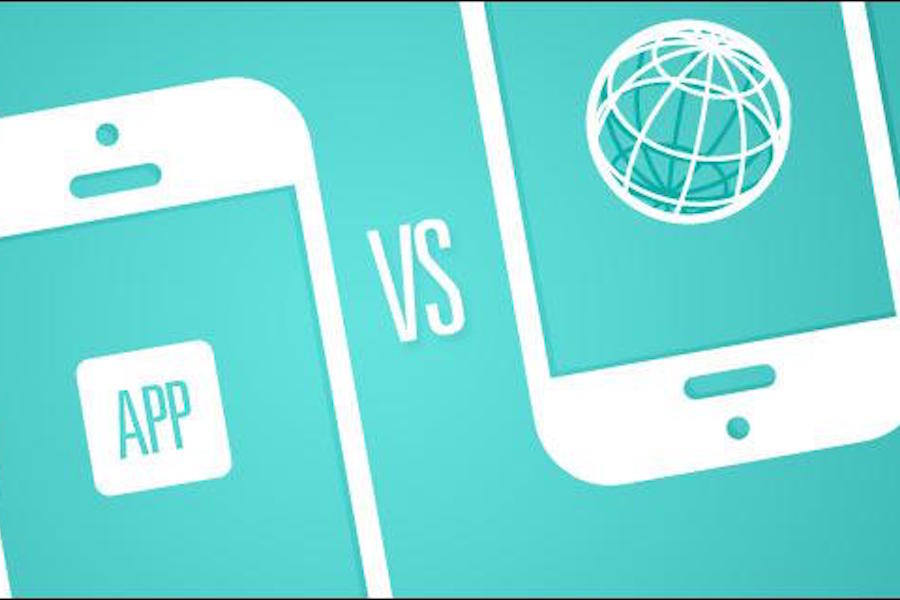Many customers and business owners ask the same question, does my business need a responsive website or mobile app? With more and more searches and purchases being made across mobile devices, missing out on a mobile-friendly site and/or application could mean missing out on big opportunities, and getting stomped out by your competition. But what’s the best business route to take? Responsive website or mobile app? Do you need both?
Much of the time, this is more of a decision based on your business’ needs rather than dishing out the pros and cons of each platform. When deciding between responsive website or mobile app, we like to break it down into three main points to consider when making this important business choice.
What is the Difference between a responsive website or mobile app?
A responsive web app consists of pages with URL’s that are linked together, just like a website on the computer, only it’s been optimized to be used on a mobile device through responsive design. You can see more detailed information about that in our other article about why mobile-optimized sites are favored by Google and are prioritized in search results here.
On the other hand, a mobile app is a specially tailored application that fits one specific purpose. It is downloaded onto a mobile device though either the iTunes App store or Google Play.
What is the Product or Service?
Now you understand the difference between a responsive website or mobile app, so now let’s look at what purposes they can serve your company. If your business is centered around service like AirBnb or is a social media platform like Twitter, deciding web or app first could be tricky. If you go for the mobile app, you’ll likely also need web connectivity to go along with it. If you create an excellent responsive website, then likely your customers will want it on their smart devices as well.
Brand experiences and utilities
There are some apps that are just born to be on a mobile device. Applications such as utilties which help you to remember to-do lists, reminders, various alarm clocks and keyboards are pretty much only meant for the mobile interface. On the other hand, some companies build apps that are based around improving and expanding their brand experience as a whole—take Coca Cola’s fun app as an example.
Other Considerations
- Websites are instantly available- nobody has to download anything to reach your company. Everyone is free to just make a quick search or put in your URL.
- Responsive website are compatible with all computers, whereas mobile apps are specifically tailored for each app market ecosystem. This means that technically a web app can reach all possible audiences, and mobile apps are limited to the device type.
- Upgrading and maintenance—websites can be updated immediately, but mobile apps require an update manually by the app user. It’s something to consider, as some updates will make your app unusable on some devices.
- Cost: mobile apps are native, and generally cost more as a result. That’s because they need to be specially tailored to suit a particular purpose. That said, the cost of both developing a responsive website or mobile app will vary greatly depending on all the features and functionalities required.
Either way that you choose to go, having a responsive website or mobile app will put your business in front of a much larger digital audience; an audience that rapidly makes decisions, analyses your competition, and decides which route to go. Having a great design experience will make a lasting impression on them, so make sure to put the extra effort into making the best possible experience.

